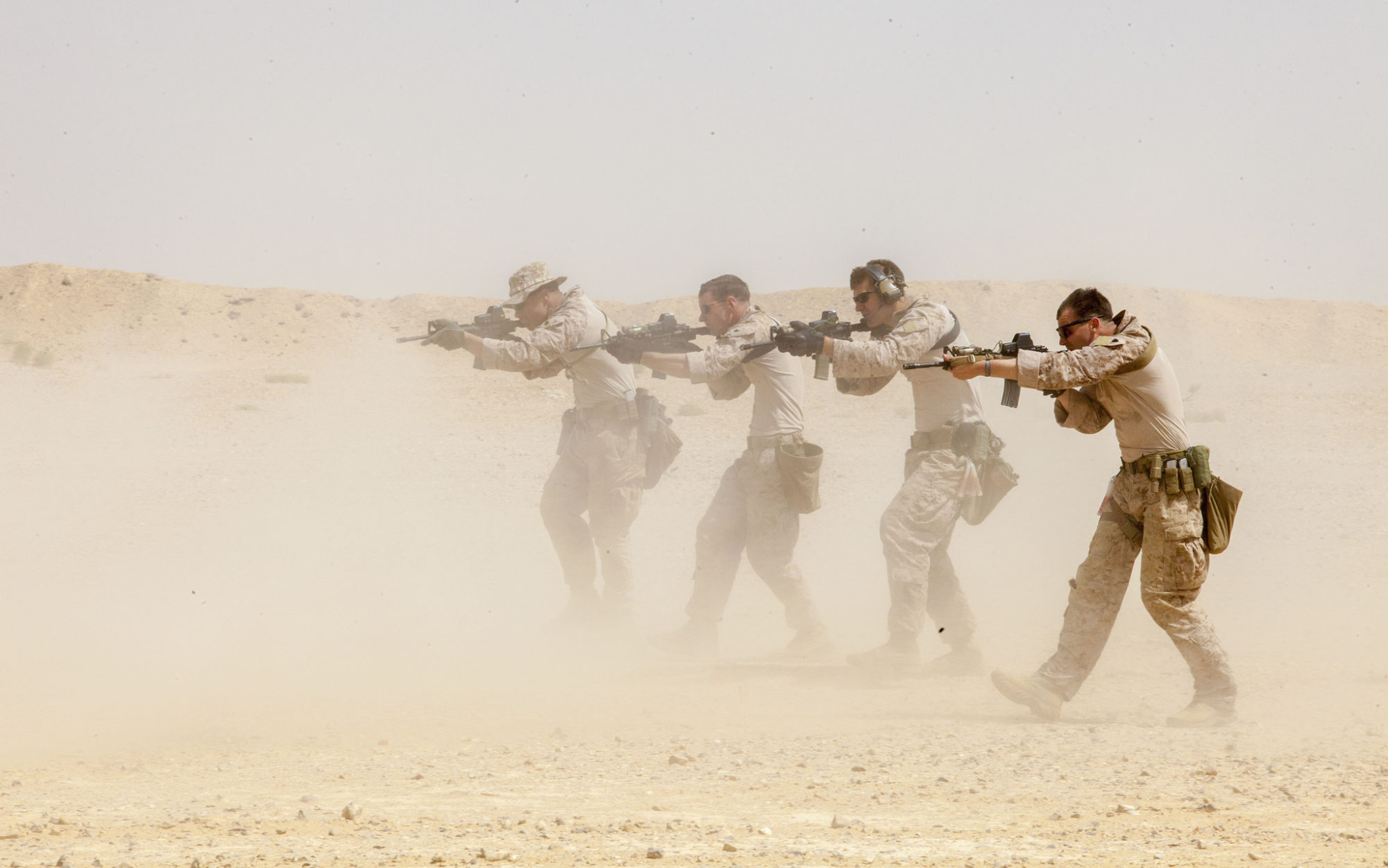After a last-minute White House bid for $25 billion to fund construction on Trump’s wall, Congress’ recent Consolidated Appropriations Act (CAA) — otherwise known as the “Omnibus” signed into law by the President on March 23rd — aims to follow through on President Trump’s promise to find the money for a wall, just not where you might think. Instead of fully funding a border wall with Mexico, Congress green-lighted funds for sustainment of a state-of-the-art border security system in the Middle East.
Congress approved the allocation of $500 million to the Hashemite Kingdom of Jordan to enhance border security. Jordan is also eligible for additional funds from a larger pot of $1.8 billion allocated to the “Counter-Islamic State of Iraq and Syria (ISIS) Train and Equip Fund,” which provides a financial assistance (including but not limited to logistics, training, supplies, and equipment) for Jordan and other regional allies in the war on ISIS. In total, the US has committed a five-year total of $6.3 billion in support of the Kingdom.
Why the influx of cash? Since the rise of the ISIS in 2014, Jordan has faced an increasing tide of terrorism as a result of its participation in the US-led coalition to defeat ISIS. Following a deadly string of terrorist attacks beginning in 2015, the Department of Defense picked up the pace on the Jordan Border Security Project, a partnership between Jordan and defense contractor Raytheon, funded by the United States. The project, currently operational on Jordan’s border with Syria and Iraq, aims to enhance Jordan’s border security and prevent infiltration across 287 miles of border through the use of a network of observation towers, command and control centers, rapid response vehicles, ground radars, and variety of modern tech.
Investing in Jordan’s border security and, more broadly, its national security is a worthwhile expenditure in order to enhance US national security and achieve US priorities in the region. In fact, the United States’ regional security priorities harmonize with Jordan’s own national security priorities — eliminating the remnants of ISIS, preventing an ISIS 2.0, and limiting Iranian expansion. And Jordan faces an immediate security threat from ISIS and Iranian-backed militias operating on its borders. ISIS maintains a strong position with an estimated 2,000 fighters only few kilometers from Jordan’s northwest border. Just this January, Jordanian intelligence dismantled a terrorist infiltration operation after discovering and destroying a network of tunnels originating in ISIS-held territory, used to smuggle terrorists and weapons across the border. Moving eastward a few hundred kilometers, Jordan faces the protracted presence and buildup of Iranian-linked militias. This has sparked fears among Jordanian and US officials that Iran aims to consolidate its regional influence through an interlinked “Iranian crescent” expanding from Tehran to Beirut.
Congress’ decision to fund Jordan’s border security is a strong step toward creating stronger, more resilient allies in the region who can support US priorities. But, from an on-the-ground perspective, hard security is not enough. A recent study by Drs. Musa Shteiwi and Mohammed Abu Rumman at the Amman-based Center for Strategic Studies, which identified and analyzed the sociological profile of 760 Jordanians who affiliate with or have supported terrorist groups, found three startling patterns of radicalization among those profiled in Jordan: (1) Jordanians who joined Hay’at Tahrir al-Sham (Al-Qaeda’s Syria affiliate) and ISIS and went to fight in Iraq and Syria; (2) Jordanians who actively affiliate with radical groups at home; and (3) Jordanians who express support and promote radical ideologies affiliated with these groups.
Simply put, Jordan’s internal war against radicalization is equally as important as its external war against terrorism. To assist Jordan to this end, the United States could assist Jordan in addressing its soft drivers of radicalization (social, economic, and political factors) through programming that aims to improve economic conditions, increase positive political engagement, strengthen civil society, and, most importantly, rehabilitate and reintegrate radicalized persons and return fighters back into society. When all you have is a hammer, as they say, everything begins to look like a nail. Jordan faces both internal and external threats that require more than hard security solutions.





















